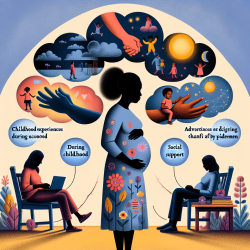In the field of speech-language pathology, data-driven decisions are paramount to creating successful outcomes for children. As professionals dedicated to improving the lives of young learners, it is crucial to integrate findings from pertinent research into our practice. One such influential study is Kevin M. Miller's autoethnography, "They’re Not Closing This School, We Won’t Let Them," which provides profound insights into the effects of structural violence on educational environments and the role of social work in mitigating these impacts.
Miller’s research, published in the Journal of Human Rights and Social Work, highlights the devastating effects of school closures in marginalized communities. The study emphasizes the importance of human rights and social justice in education, shedding light on how structural violence—manifested through unequal resource distribution and discriminatory policies—can severely impact students' well-being and academic performance.
As speech-language pathologists working in school settings, we can draw several actionable insights from this research to enhance our practice:
- Advocate for Resource Allocation: Ensure that schools in marginalized communities receive equitable resources. This includes advocating for proper funding, access to necessary materials, and support services that can enhance the learning environment.
- Implement Trauma-Informed Practices: Recognize the signs of trauma in students and incorporate trauma-informed care into therapy sessions. This approach can help students feel safe and supported, which is essential for effective learning and communication.
- Collaborate with Social Workers: Foster strong partnerships with social workers and other support staff. Collaboration can lead to a more holistic approach to addressing the needs of students, especially those affected by structural violence.
- Promote Community Engagement: Encourage community involvement in schools. This can include organizing workshops, creating support groups, and involving parents and community members in decision-making processes.
- Conduct Further Research: Engage in or support research that examines the impact of structural violence on student outcomes. Data from such studies can be used to advocate for policy changes and improved practices in schools.
Miller’s narrative also underscores the resilience and strength of students and communities in the face of adversity. As practitioners, it is our duty to support and empower these voices, ensuring that our interventions are culturally responsive and rooted in social justice.
To read the original research paper, please follow this link: "They’re Not Closing This School, We Won’t Let Them"










